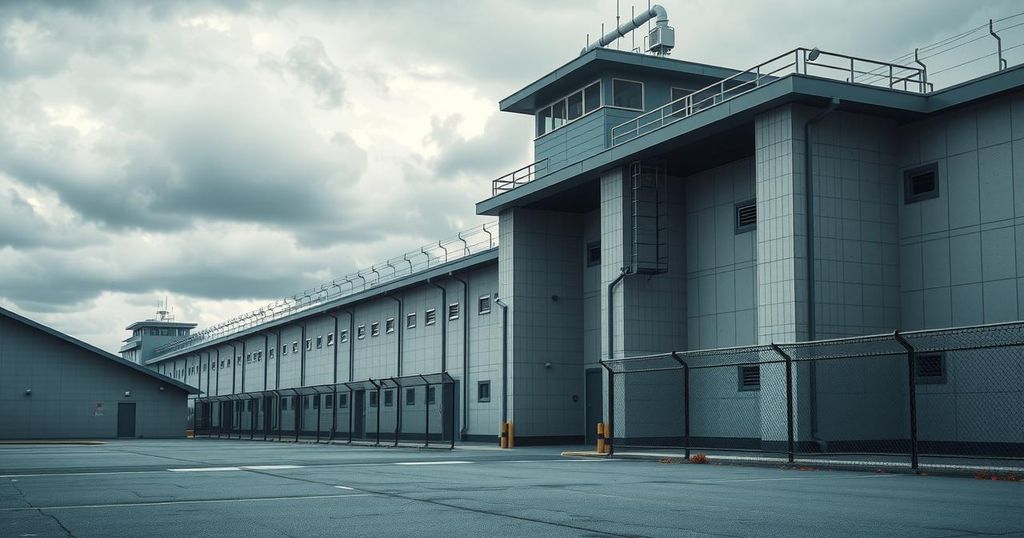The US has paid El Salvador $6 million to detain 238 gang members from Venezuela and 23 from MS-13 in a deal that emphasizes financial support for El Salvador’s prison system. The arrangement raises concerns about human rights and the implications of international detention outsourcing, a practice which may expand across the Americas.
The United States has provided El Salvador with $6 million to house 238 members of the Venezuelan Tren de Aragua gang and 23 MS-13 affiliates in a controversial prison deal. These individuals are incarcerated in El Salvador’s maximum-security Terrorism Confinement Centre (CECOT). This unprecedented cross-border incarceration agreement was initiated during a visit by US Secretary of State Marco Rubio.
The financial aspects of this arrangement are notable, as the United States will pay a rate of $20,000 per prisoner annually. This influx of funds is crucial for El Salvador, which is grappling with a public debt of $31 billion, equating to 82% of its GDP. President Nayib Bukele has indicated that such funds may help move the prison system towards self-sustainability.
Despite facing legal hurdles in the United States, including a temporary suspension of deportations mandated by District Judge James E. Boasberg, the transfer of prisoners proceeded. The White House defended its actions by stating that the individuals deported were no longer on US soil when the court ruling was issued. Press Secretary Karoline Leavitt emphasized, “A single judge in a single city cannot direct the movements of an aircraft carrier full of foreign alien terrorists who were physically expelled from US soil.”
The deportations were carried out under the 1798 Alien Enemies Act, which had remained dormant since World War II. This law was invoked by President Donald Trump, who categorized the Venezuelan gang as an “invasion,” thus allowing for expedited removals that bypass standard legal protections.
The CECOT is a state-of-the-art facility that opened in 2023, with the capacity to house 40,000 inmates. El Salvador is proactively marketing this facility to foreign governments like the US, especially given the substantial expenditure on correctional systems in the nation, which amounts to $80.7 billion annually in the US alone. This mega-prison plays a crucial role in Bukele’s successful efforts to reduce gang violence in El Salvador.
However, the detention centre is under scrutiny from human rights organizations. NGO Cristosal criticized the facility for its restrictions, including bans on visitation and outdoor access, alongside a lack of rehabilitation programs. Reports of 261 deaths in Salvadoran prisons during Bukele’s gang crackdown have raised further concerns, with the Inter-American Commission on Human Rights also voicing apprehensions.
Families of the deported individuals have voiced their opposition to the criminal classifications. One relative expressed on social media, “Many turned themselves in to US authorities because they could no longer sustain their economic situation there, but they are not criminals,” calling for individual reviews of their cases.
The Venezuelan government has decried the deportations as an act of “criminalising migration” and reminiscent of historical atrocities. The rationale behind transferring Venezuelan nationals to El Salvador rather than repatriating them remains unclear, especially as Venezuela accepted the resumption of repatriation flights shortly before.
This deal may signal a new trend for international detention outsourcing, with interest from other nations like Chile in similar arrangements. The implications of this are significant, as the arrangement reflects broader changes in international justice and corrections management.
The partnership between Trump and Bukele, both known for their stringent crime and immigration policies, is further solidified through this deal. It also represents a strategy to address prison overcrowding in the US while establishing regional alliances with like-minded leaders. Close monitoring of this new model from policymakers and human rights advocates is essential, as it could fundamentally reshape the future of international detention practices.
In summary, the recent $6 million agreement between the United States and El Salvador represents a significant development in international incarceration practices. This arrangement not only provides financial relief to El Salvador but also raises important human rights concerns. The model initiated here has the potential for broader applicability across the Americas as nations seek solutions to their own correctional challenges. Continued scrutiny and dialogue will be crucial to ensuring that human rights are upheld while addressing crime and immigration issues.
Original Source: www.intellinews.com




